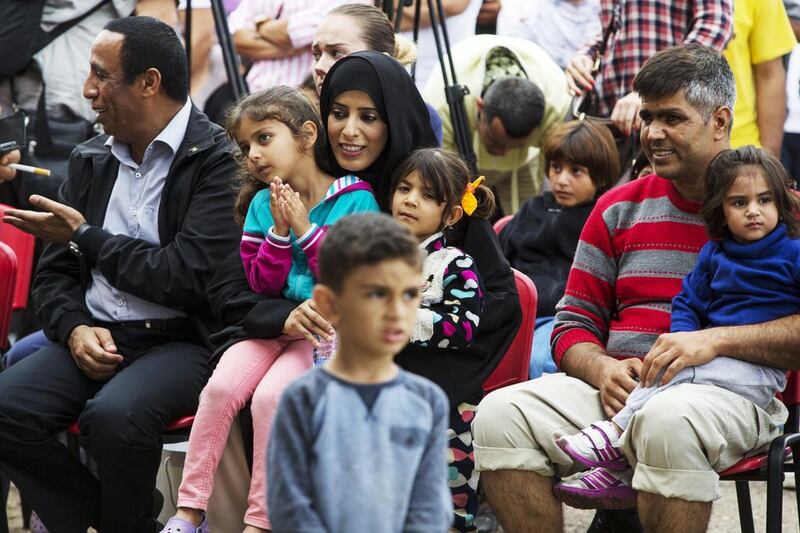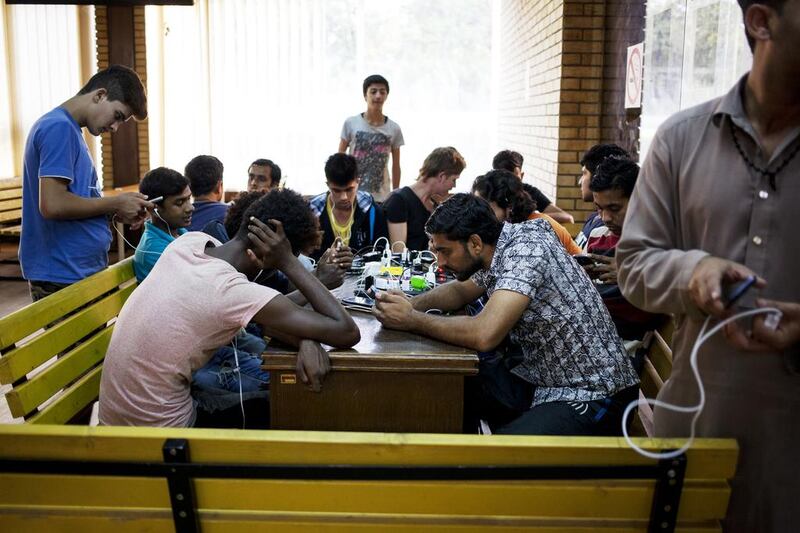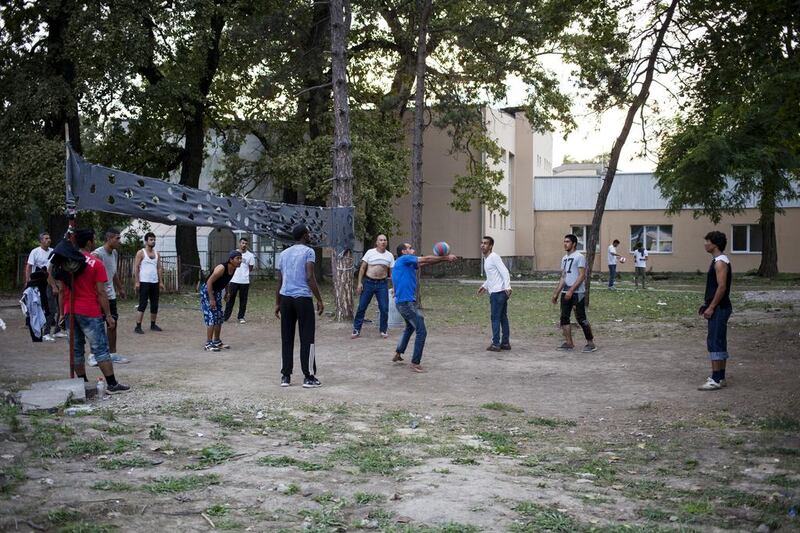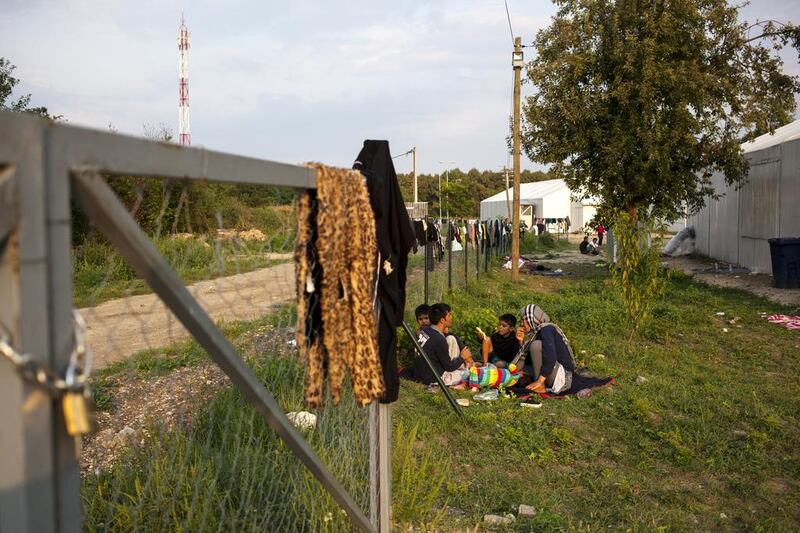ABU DHABI // Doctors and government officials in Serbia said a non-profit organisation’s efforts were helping the country to deal with its continuing refugee crisis.
Last summer, soon after an influx of migrants descended on Serbia, the Women and Health Alliance International – an international non-profit, non-government organisation based in France and launched by Sheikha Shamsa bint Hamdan Al Nahyan – began providing health care to refugees in camps across the country.
More than one million refugees – primarily from Syria, Afghanistan, and Iraq – fleeing war and poverty have attempted to pass through Serbia in hopes of reaching northern Europe.
Usually arriving by foot after a gruelling journey from their home countries to Serbia, which can take up to a year, many of the displaced are in need of immediate care.
Infection, pneumonia, dehydration, hypertension, respiratory problems, foot wounds and complications from diabetes are some of the most common problems Dr Jana Jordanovic said she encountered with the new arrivals.
Working along the Serbian-Croatian border at Waha’s medical centre in Adasevci – one of three Serbian camps the -organisation is currently based in – the doctor said she saw more than 100 patients a day in the camp.
“The most difficult thing is the language barrier,” said Dr Jordanovic, whose patients are predominantly Afghan and Syrian.
The Waha medical centre provides diagnoses to the more than 1,500 refugees sheltered in the camp, as well as basic medication, such as antibiotics and painkillers. Patients with more serious conditions are referred to local hospitals.
Although she felt that she was making a difference, the paediatrician said more doctors and facilities were needed.
“We would like to follow up with the patients but we do not have enough time,” she said.
Having worked with Waha for more than eight months, Dr Jordanovic said it was easy to see that the organisation was serious about its mission.
“Working here is a unique experience and, unlike other organisations [in the same field], Waha is more concentrated on providing medical help,” she said.
Since its arrival in Serbia in September last year, Waha has employed 10 doctors, who have treated more than 45,000 patients, as well as donating Dh123,000 in medical equipment to centres across the country.
Ivan Miskovic, from the Serbian Commissariat for Refugees and Migration, said the work of organisations such as Waha was key to addressing the country’s ongoing immigrant crisis.
“Even if the government has the allocated money and procedures, the involvement of NGOs is important because they can act promptly,” Mr Miskovic said.
Provision of timely medical help for migrants was essential not only to the refugees, but also for the health of the local population he said.
“At one moment, you have thousands crossing into your country and you have no idea what their state of health is. Treating them protects them and the public of Serbia.”
With Hungary and Croatia tightening border control with Serbia earlier this year, an increasing number of refugees are becoming stranded in country.
The latest UNHCR report said 4,400 refugees were currently in Serbia, of which 63 per cent were from Afghanistan, 20 per cent from Syria and 42 per cent were children.
With many more unregistered refugees, the number is likely higher. Dr Khawla Al Saeedi, president representative at Waha, said being mobile and flexible was important to providing the refugees with the care that they required.
“No one can predict what is coming next – politics change, borders close. You cannot make a medical centre for them in a location they will be in for just a few days,” Dr Al Saeedi said.
She said this was the reason Waha provided mobile clinics in Serbia and across the globe, including all along the refugee route in Syria, Turkey and Greece.
“When we noticed that refugees in poor health were arriving on the shores of Greece, we decided to provide them with medical aid out in the water with our rescue boats, which serve as mobile clinics. We will support them with health care wherever they need it and until we are not needed any more,” she said.
tsubaihi@thenational.ae









